University of Otago researchers are investigating and responding to a wide range of health challenges that our youngest citizens may face, or be affected by. We're also sharing our research excellence with vulnerable groups here and overseas.
A Better Start National Science Challenge
 Better science together for a better start in life.
Better science together for a better start in life.
Our children are our future, we want to give them the best possible start in life. Getting a good start includes being a healthy weight, learning successfully and being mentally well. That's what all families, whānau and communities want for their tamariki. But obesity, learning and mental health are challenges for some children.
Our mission is to find better ways to predict, prevent and treat obesity, learning and mental health problems in children and teenagers.
University of Otago researchers contribute in the Science Leadership Team and in projects.
E Tipu e Rea—Grow and Branch Forth
Email contact@abetterstart.nz
Web www.abetterstart.nz
Centre for International Health
The Centre for International Health facilitates and promotes research to contribute to the understanding and improvement of health in under-resourced countries, and focuses on postgraduate training and strategic mentorship of leaders.
Researchers interests include:
- Anaemia and micronutrient deficiencies, child under-nutrition, and effectiveness of maternal and child health interventions
- Mycobacterium tuberculosis infection and disease, Streptococcus pneumoniae carriage, disease, and vaccination
- The syndrome of fever in resource-limited areas, Salmonella and other invasive bacterial infections, bacterial zoonoses, diagnostics and ethics in global health
Email internationalhealth@otago.ac.nz
Web otago.ac.nz/internationalhealth
Centre for Translational Cancer Research |Te Aho Matatū
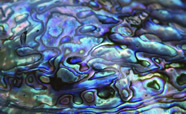 Translational cancer research bridges the gap between laboratory-based science and treatment in the clinic. We now have sufficient knowledge in the fields of cancer biology, molecular biology, and immunology to make a significant impact on the treatment and management of cancer.
Translational cancer research bridges the gap between laboratory-based science and treatment in the clinic. We now have sufficient knowledge in the fields of cancer biology, molecular biology, and immunology to make a significant impact on the treatment and management of cancer.
We're bringing about rapid improvements in cancer outcomes by addressing defined clinical problems. Our research is accelerating the development and testing of new drugs and diagnostic tools that directly assist clinicians and their patients.
Our work covers:
- Drug development
- Immunotherapy
- Childhood cancers
- Diagnostic test design
- Personalised medicine
Email ctcr@otago.ac.nz
Web otago.ac.nz/ctcr
Department of Paediatrics (UOC)
 The Paediatric Department is one of three paediatric departments within the University of Otago, the other two being in Dunedin and Wellington.
The Paediatric Department is one of three paediatric departments within the University of Otago, the other two being in Dunedin and Wellington.
The Christchurch Department of Paediatrics, which was established in 1972, has played a leading role in the development of teaching, research, and professional training for paediatrics and child health in New Zealand.
Research in the Department of Paediatrics
Our department works closely with a number of University basic science research groups and departments, such as the Centre for Free Radical Research.
Email paediatrics.uoc@otago.ac.nz
Web otago.ac.nz/christchurch/departments/paediatrics/research
Department of Paediatrics and Child Health (DSM)
Improving health care for children.
The Department of Paediatrics and Child Health at the Dunedin School of Medicine has a long and proud tradition for teaching and research.
The Department holds positions of national leadership in the form of:
- Curatorship of the National Mortality Review Data Group
- Hosting of the New Zealand Paediatric Surveillance Unit
- New Zealand Child and Youth Epidemiology Service
Email pch.admin@otago.ac.nz
Web otago.ac.nz/paediatrics-child-health/research
Department of Paediatrics and Child Health (UOW)
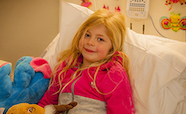 We are committed to excellence in teaching to both undergraduate medical students as well as postgraduate students.
We are committed to excellence in teaching to both undergraduate medical students as well as postgraduate students.
Our department is also active in a variety of research projects within the field of Child Health including:
- Sleep and breathing in preterm and term infants as well as in the older paediatric age-range
- Acute and chronic complications of diabetes
- Epilepsy Research Group, improving the quality of life for children with epilepsy and their families
- Allergy and infectious disease
- The impact of preterm birth on cardiac autonomic function, vascular function, and the development of regional adiposity
Email paediatrics.uow@otago.ac.nz
Web otago.ac.nz/wellington/departments/paediatricschildhealth/research
Department of Psychological Medicine (UOC)
 The Department of Psychological Medicine is one of the largest Departments at the University of Otago, Christchurch. Over the past decade it has grown from a staff of less than ten to over forty.
The Department of Psychological Medicine is one of the largest Departments at the University of Otago, Christchurch. Over the past decade it has grown from a staff of less than ten to over forty.
The Department continues to be actively involved in the teaching of Psychological Medicine to medical students. The Department is also responsible for the academic programme for Christchurch's successful psychiatric registrar training programme.
Research interests include:
- Christchurch Health and Development Study
- Mental Health
- Eating disorders research
- Late effects of prematurity
- National Addiction Centre
Email psychmed.uoc@otago.ac.nz
Web otago.ac.nz/christchurch/departments/psychmed/research
Edgar Diabetes and Obesity Research (EDOR)
 Our mission is to make a significant contribution to reducing the global burden of diabetes and obesity through research and dissemination of knowledge. We aim to reduce the prevalence, and to improve the management, of diabetes and obesity by finding new ways to prevent and treat these conditions. By striving for research excellence and encouraging international collaboration we can bring the greatest benefit to New Zealanders and the wider world. We're sharing our discoveries with individuals, communities, teachers, health professionals and policymakers.
Our mission is to make a significant contribution to reducing the global burden of diabetes and obesity through research and dissemination of knowledge. We aim to reduce the prevalence, and to improve the management, of diabetes and obesity by finding new ways to prevent and treat these conditions. By striving for research excellence and encouraging international collaboration we can bring the greatest benefit to New Zealanders and the wider world. We're sharing our discoveries with individuals, communities, teachers, health professionals and policymakers.
Our child-health-related research includes:
- APPLE: A pilot programme for lifestyle and exercise
- BLISS: Baby-led introduction to solids
- Family-based Pacific child obesity prevention
- MInT: Motivational interviewing in treatment
- Play study
- POI:Prevention of overweight in infancy
Email diabetes@otago.ac.nz
Web otago.ac.nz/diabetes
Epilepsy Research Group
 Epilepsy is the most common serious brain disorder worldwide. It is characterised by seizures which can occur at any age. 1 in 20 people will have seizures at some stage in their lives. In New Zealand, there are 38,000 individuals living with epilepsy.
Epilepsy is the most common serious brain disorder worldwide. It is characterised by seizures which can occur at any age. 1 in 20 people will have seizures at some stage in their lives. In New Zealand, there are 38,000 individuals living with epilepsy.
Epilepsy is a group of disorders organised into syndromes defined by age of onset, types of seizures, EEG features and comorbidities. We now know that genetic abnormalities are the cause of the majority of epilepsy. Unfortunately, to date only a small percentage of the genes responsible for the epilepsies have been identified. These genes encode many different ion channel subunits and brain-expressed proteins.
Epilepsy Research Group aims to:
- Identify new and refine emerging epilepsy syndromes
- Elucidate the genetic architecture of the epilepsies
- Discover the genes that cause the epilepsies
- Work toward precision medicine with targeted therapies for epilepsies
Email epilepsy.research@otago.ac.nz
Web https://www.otago.ac.nz/epilepsy/index.html
Healthier Lives – He Oranga Hauora National Science Challenge 2015–2024
 The Healthier Lives – He Oranga Hauora National Science Challenge was a national research collaboration dedicated to achieving healthier lives for all New Zealanders.
The Healthier Lives – He Oranga Hauora National Science Challenge was a national research collaboration dedicated to achieving healthier lives for all New Zealanders.
It has contributed evidence, technology and tools that can help to achieve more equitable health outcomes in Aotearoa New Zealand.
The website remains available as a resource and for archived materials.
The Infection Group
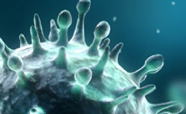 The Infection Group are interested in all aspects of human infection, and our research aims to provide new insights into the prevention, management, surveillance and control of infections of global importance. We are a research collaboration between the University of Otago and the Canterbury District Health Board, based in Christchurch, with members and collaborators in other centres.
The Infection Group are interested in all aspects of human infection, and our research aims to provide new insights into the prevention, management, surveillance and control of infections of global importance. We are a research collaboration between the University of Otago and the Canterbury District Health Board, based in Christchurch, with members and collaborators in other centres.
Email the-infection-group@otago.ac.nz
Web otago.ac.nz/infection-group
Late effects of prematurity study
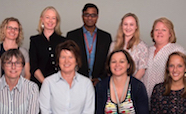 Modern neonatal practice has significantly improved outcomes for children born very preterm.
Modern neonatal practice has significantly improved outcomes for children born very preterm.
However, as they grow up, they are at increased risk for a range of neuro-developmental problems that impact on both home and school life.
A Canterbury team has been studying the brain and behavioural development since birth, of 110 children born very preterm along with 113 term born peers.
Email christchurch@otago.ac.nz
Web otago.ac.nz/christchurch/research/mentalhealthclinicalresearch/otago627545.html
National Addiction Centre
 The National Addiction Centre (formerly the National Centre for Treatment Development (Alcohol, Drugs & Addiction)) was established by the Alcohol Advisory Council of New Zealand in 1996 particularly as a resource for the alcohol and drug treatment field of New Zealand.
The National Addiction Centre (formerly the National Centre for Treatment Development (Alcohol, Drugs & Addiction)) was established by the Alcohol Advisory Council of New Zealand in 1996 particularly as a resource for the alcohol and drug treatment field of New Zealand.
We are a university-based centre dedicated to improving treatment and prevention of addiction and related problems for people in Aotearoa New Zealand.
It is intended that output from the National Addiction Centre research will motivate both the teaching and consultation activity of the Centre in line with three guiding principles.
The National Addiction Centre is:
- Committed to working in accord with the letter and spirit of the Treaty of Waitangi as the founding document of modern New Zealand society
- Focused on the people in Aotearoa New Zealand who have addiction and co-existing disorders related problems and their families/whanau
- Dedicated to assembling scientific evidence as the basis for improving treatment for people with these problems
Email simon.adamson@otago.ac.nz
Web otago.ac.nz/christchurch/research/nac/
The New Zealand Mortality Data Review Group |Te Rōpū Kohi Pitopito Mōhiotanga mō te Taka Mate
 The NZ Mortality Review Data Group—Te Rōpū Kohi Pitopito Mōhiotanga mō te Taka Mate, was established in 2003 to support the national Child and Youth Mortality Review Committee (CYMRC). We now also support the Perinatal and Maternal Mortality Review Committee (established 2006), and since 2016, the Perioperative Mortality Review Committee.
The NZ Mortality Review Data Group—Te Rōpū Kohi Pitopito Mōhiotanga mō te Taka Mate, was established in 2003 to support the national Child and Youth Mortality Review Committee (CYMRC). We now also support the Perinatal and Maternal Mortality Review Committee (established 2006), and since 2016, the Perioperative Mortality Review Committee.
We have a contract with the Health Quality & Safety Commission to receive and store data, manage a database and provide data and research support for the above committees. We are also heavily involved in the CYMRC research programme. Having been involved in mortality review from the inception of the first still-existing national mortality review committee in 2002, we have a wealth of experience and expertise in this area.
The group receives information from a variety of sources, such as health, coronial, transport, water safety and child protection data, and data gained from the process of local review of each death, which is stored in a comprehensive database. This is a valuable resource that is being used increasingly to research areas of interest and importance.
We have expertise in mortality research, the process of mortality review, and the development of IT systems to support the above. Our team is made up of data and IT experts, research analysts and a clinical epidemiologist.
Email mortality.group@otago.ac.nz
Web https://secure-www.otago.ac.nz/nzmrdg/
New Zealand National Poisons Centre
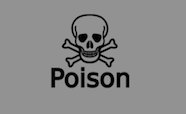 The New Zealand National Poisons Centre (NZNPC) answers enquiries both from health professionals and from the general public concerning acute poisoning and the toxic effects of chemicals, drugs, poisonous plants, poisonous insects and marine animals. The 24-hour telephone number is 0800 POISON (0800 764-766). The NPC also maintains an extensive database (TOXINZ) that contains information and treatment guidelines for the management of poisoned patients. The database contains some 200,000 listed chemical products, pharmaceuticals, plants and hazardous creatures. It has New Zealand specific trade names, household products, plant and animal species.
The New Zealand National Poisons Centre (NZNPC) answers enquiries both from health professionals and from the general public concerning acute poisoning and the toxic effects of chemicals, drugs, poisonous plants, poisonous insects and marine animals. The 24-hour telephone number is 0800 POISON (0800 764-766). The NPC also maintains an extensive database (TOXINZ) that contains information and treatment guidelines for the management of poisoned patients. The database contains some 200,000 listed chemical products, pharmaceuticals, plants and hazardous creatures. It has New Zealand specific trade names, household products, plant and animal species.
Our Kidzone page has some games to help teach children about safety.
Email poisons@otago.ac.nz
Web poisons.co.nz
New Zealand Paediatric Surveillance Unit
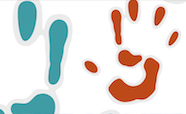 The New Zealand Paediatric Surveillance Unit (NZPSU) was established with funding from the Ministry of Health in order to:
The New Zealand Paediatric Surveillance Unit (NZPSU) was established with funding from the Ministry of Health in order to:
- Operate a system for monitoring acute flaccid paralysis, as part of the global certification of eradication of poliomyelitis, required by the World Health Organization
- Facilitate national surveillance and improve the knowledge of uncommon childhood conditions in New Zealand
The NZPSU is part of the Department of Women's and Children's Health, Dunedin School of Medicine.
Email nzpsu@otago.ac.nz
Web otago.ac.nz/nzpsu
Otago Genomics Facility
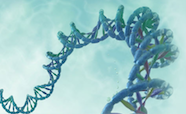 We provide expertise and sequencing resources to New Zealand researchers and industry including:
We provide expertise and sequencing resources to New Zealand researchers and industry including:
- Project design and advice
- Illumina HiSeq sequencing
- Illumina MiSeq sequencing
- Nanostring nCounter Analysis System
The Otago Genomics Facility is an Illumina Propel-certified service provider for Illumina HiSeq 2500 and MiSeq sequencing platforms, and is also a Nanostring nCounter Analysis System core facility.
Email genomics@otago.ac.nz
Web otago.ac.nz/genomics
Otago Global Health Institute (OGHI)
 At the Otago Global Health Institute (OGHI), we foster partnerships to help solve global health problems. OGHI harnesses both technical and collaborative strengths across the Divisions, Schools, and Departments of the University of Otago to make them available to share with partners as we seek together to find solutions to complex global health problems.
At the Otago Global Health Institute (OGHI), we foster partnerships to help solve global health problems. OGHI harnesses both technical and collaborative strengths across the Divisions, Schools, and Departments of the University of Otago to make them available to share with partners as we seek together to find solutions to complex global health problems.
Email globalhealth@otago.ac.nz
Web otago.ac.nz/global-health
Pacific Health Research at Otago
 Talofa lava, kia orana, malo e lelei, fakaalofa lahi atu, bula vinaka, malo ni, halo ola keta, mauri, fakatalofa atu, and warm Pacific greetings!
Talofa lava, kia orana, malo e lelei, fakaalofa lahi atu, bula vinaka, malo ni, halo ola keta, mauri, fakatalofa atu, and warm Pacific greetings!
We're celebrating our Pacific health research in the Division of Health Sciences.
Learn about what's going on in Pacific health research, how we can support researchers, and where to start if you're excited about research.
In Pacific child health read more about the research interests of an established professional, and a project from a young researcher:
- Dr Kiki Maoate: Childhood infection and paediatric surgery
- Ashleigh Raikuna: Severe childhood dental caries
Email vot@otago.ac.nz
Web otago.ac.nz/pacific-health-research
Reproduction, Genomics and Development Research Group
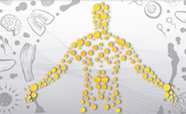 The Reproduction, Genomics and Development Group, in the Department of Anatomy, is made up of a number of labs that explore different aspects of development: from fertilisation and the processes governing the very first cellular divisions, through to adulthood, and how problems that arise during early development and gestation may have effects on the health of individuals and populations.
The Reproduction, Genomics and Development Group, in the Department of Anatomy, is made up of a number of labs that explore different aspects of development: from fertilisation and the processes governing the very first cellular divisions, through to adulthood, and how problems that arise during early development and gestation may have effects on the health of individuals and populations.
Our group explores these questions in humans, model systems, and a host of unique and understudied animal taxa.
Email greg.anderson@otago.ac.nz
Web otago.ac.nz/anatomy/research/r-g-d
Research Infrastructure Centre
 Our Research Infrastructure Centre offers specialist expertise, technology and facilities in protein research, genomics, imaging, and biomedical research.
Our Research Infrastructure Centre offers specialist expertise, technology and facilities in protein research, genomics, imaging, and biomedical research.
We support optimum design and analysis of your research, and provide skill development opportunities.
Our academic leadership is of the highest calibre and we have extensively experienced and skilled staff.
Our services are available to researchers in institutions, industry, government and private companies.
Email ric.admin@otago.ac.nz
Web otago.ac.nz/healthsciences/research/ric
School of Pharmacy
 The School of Pharmacy has a very active research programme with disciplines ranging from science to humanities.
The School of Pharmacy has a very active research programme with disciplines ranging from science to humanities.
We have three main research areas:
- Pharmaceutical Sciences: drug discovery, drug metabolism and drug action to extend the range of drugs available and to provide a scientific basis for the quality use of medicines and bioactive substances.
- Clinical Pharmacy: concerned with patient care and the optimisation of medicine use in order to promote health and wellness, and prevent disease.
- Social Pharmacy: our research focuses mainly on access to, and use of medicines.
Our School of Pharmacy child health research page provides a taste of our relevant research.
Email pharmacy.research@otago.ac.nz
Web otago.ac.nz/pharmacy/research
Sir John Walsh Research Institute
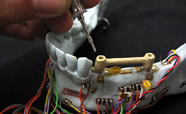 The Sir John Walsh Research Institute is the research arm of the Faculty of Dentistry at the University of Otago.
The Sir John Walsh Research Institute is the research arm of the Faculty of Dentistry at the University of Otago.
Oral health is essential for wellbeing. We lead the advancement of oral health research, and practice in New Zealand by combining the strengths of biological, clinical, and public health expertise. From the molecular level through biological systems to the health of populations, our research is improving oral health in New Zealand.
Our research objectives are:
- To develop clinical research that translates discoveries into measurable health benefits
- To maintain fundamental research that underpins our teaching
We are uniquely placed within the Faculty of Dentistry at the University of Otago—the only dental school in New Zealand, and ranked highly worldwide. This enables researchers and clinicians to work together to solve specific oral health problems and to rapidly translate findings into improved clinical practice.
Read more about some of our work in child oral health:
- Further funding success (Transformer Tooth and Hall Technique)
- Dunedin dental study "most read" article
Email sjwri.admin@otago.ac.nz
Web otago.ac.nz/sjwri/research
Suicide and Mental Health Group
 Te Rōpū Rangahau i te Mate Whakamomori me te Hauora Hinengaro | Suicide and Mental Health Group is a multi-disciplinary team of researchers and clinicians. It contributes to knowledge, policy, and services by conducting high quality research in suicide prevention, mental health and illness.
Te Rōpū Rangahau i te Mate Whakamomori me te Hauora Hinengaro | Suicide and Mental Health Group is a multi-disciplinary team of researchers and clinicians. It contributes to knowledge, policy, and services by conducting high quality research in suicide prevention, mental health and illness.
The following sections highlight research activities undertaken in the Suicide and Mental Health Research Group. These build on a number of previous projects undertaken individually and collectively:
- Suicide prevention
- Mental Health research
- Primary care
- Community mental health
- Understanding diverse sex development / intersexuality in NZ
- Pacific mental health
Email gabrielle.jenkin@otago.ac.nz
Web https://www.otago.ac.nz/wellington/research/smhrg/research/
